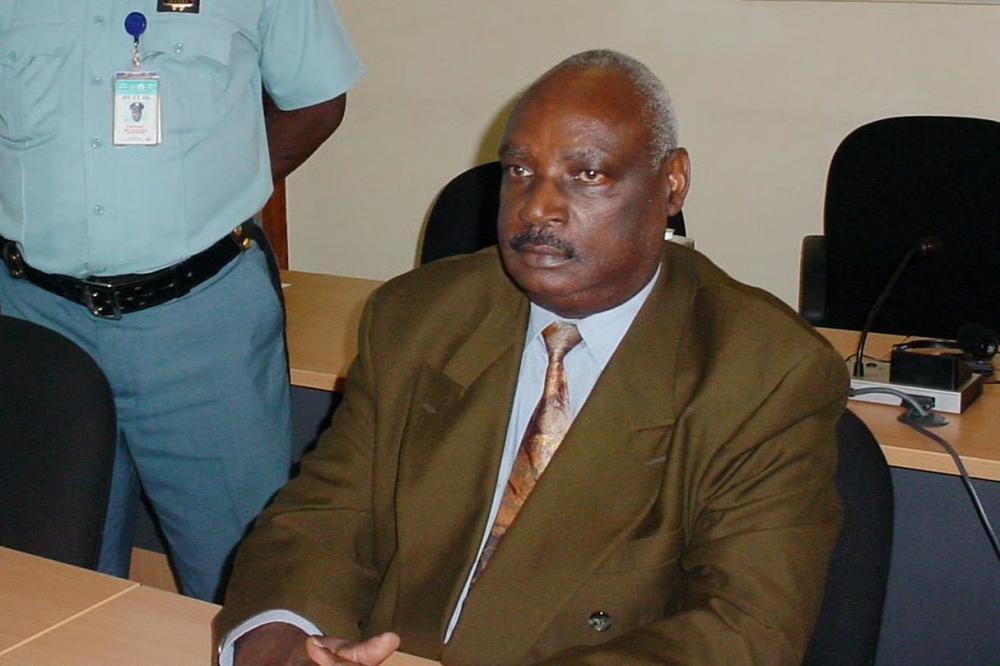Africa-Press – Rwanda. Serge Grouard, the Mayor of French city of Orléans, has revoked authorization for the burial of Protais Zigiranyirazo, the former Prefect of Ruhengeri at the city’s municipal cemetery, citing his links to the 1994 Genocide against the Tutsi and the 1985 murder of American zoologist Dian Fossey.
The decision follows concerns raised by Genocide survivors’ associations and other advocacy groups in France.
Zigiranyirazo, brother-in-law of former Rwandan President Juvénal Habyarimana, was part of Akazu, an elite group that implemented the Genocide, which claimed more than one million lives.
Zigiranyirazo died on August 4 in Niamey, Niger, where he had been living under United Nations supervision. His burial in Orléans had been scheduled for August 28, following a religious ceremony planned at the Saint-Paterne church.
On August 26, Mayor Grouard issued a decree revoking the authorization initially granted on August 20. In his ruling, the mayor stressed that allowing the burial would constitute a risk to public order and an affront to the memory of victims of the Genocide against the Tutsi.
“Given the sensitive nature and exceptional gravity of the acts attributed to the person concerned, which constitute crimes against humanity recognized by international law, the burial of Zigiranyirazo in the Orléans municipal cemetery is refused for reasons of public order,” Mayor Grouard said in the official decree.
The mayor further emphasized that the presence of several hundred expected attendees, alongside private security services, could have triggered “serious disturbances to public order.” He also warned of the risk that Zigiranyirazo’s grave could become a site of “gathering, commemoration, or exaltation” for genocide perpetrators and sympathizers.
Zigiranyirazo’s controversial history
Also known as “Mr Zed,” Zigiranyirazo was a key figure in Rwanda’s genocidal regime. In 2008, the International Criminal Tribunal for Rwanda (ICTR) sentenced him to 20 years in prison for genocide and extermination. However, in 2009, he was acquitted on appeal.
Associations raise alarm
The decision to cancel the burial followed a request from various advocacy groups, including Ibuka France and the Collectif des Parties Civiles pour le Rwanda (CPCR).
Ibuka France had earlier expressed concerns, saying: “That France, which had refused [Zigiranyirazo] hospitality during his lifetime, accepts to welcome his remains constitutes an offense to memory. This ceremony risks transforming Orléans into a gathering place for nostalgics of the genocidal regime.”
The association further recalled that France had already allowed the burials of Jean Bosco Barayagwiza, one of the founders of the hate radio RTLM, and Colonel Anatole Nsengiyumva, both convicted for their roles in the genocide. Ibuka warned that these precedents “highlight the place granted to the executioners in the public space and aggravate the attacks on the memory of the genocide against the Tutsi.”
Following Mayor Grouard’s decree, Ibuka France issued a statement commending the decision.
“This decision protects the memory of the victims and prevents the municipal cemetery from becoming a place of gathering, denial, or glorification of the Genocide against the Tutsi. France must no longer be a refuge for Rwandan génocidaires and their remains. Historical truth and the duty of justice demand it,” the survivors association said.
The CPCR also welcomed the move. “We can only applaud the courageous decision of the Mayor of Orléans. This vigilance ensures that maneuvers to rehabilitate génocidaires do not go unnoticed,” the organization said.
In addition to the mayor’s decree, Orléans Bishop Monsignor Jacques Blaquart reportedly issued a ruling refusing to conduct Zigiranyirazo’s funeral mass.
Legal framework and next steps
Mayor Grouard based his decision on the General Code of Local Authorities, invoking police powers to preserve public order and the dignity of burial sites. The decree clearly states that the earlier authorization had been issued “without due regard for the deceased’s past.”
Under French law, the decision may be appealed before the Orléans Administrative Court within two months.
For More News And Analysis About Rwanda Follow Africa-Press






